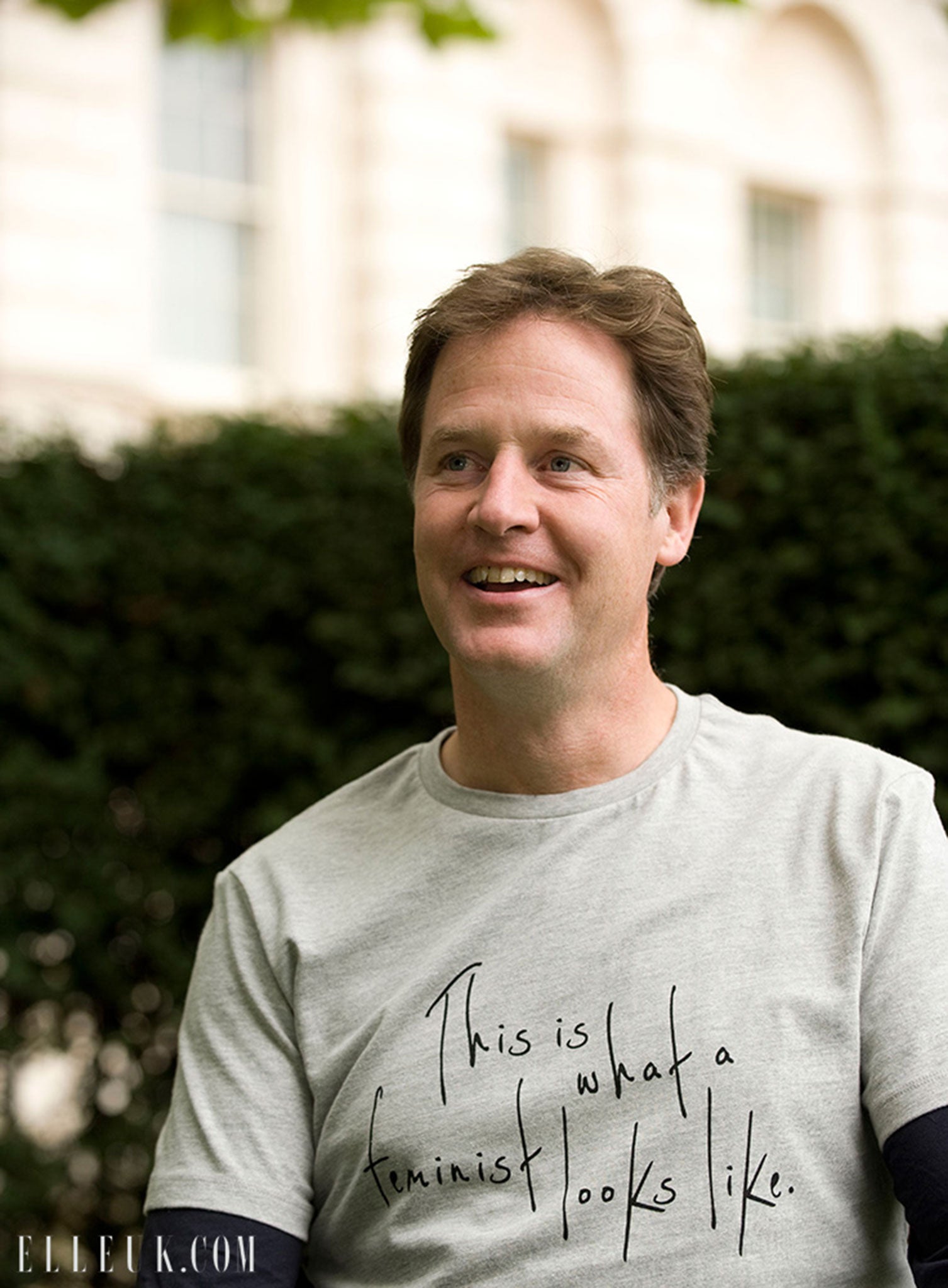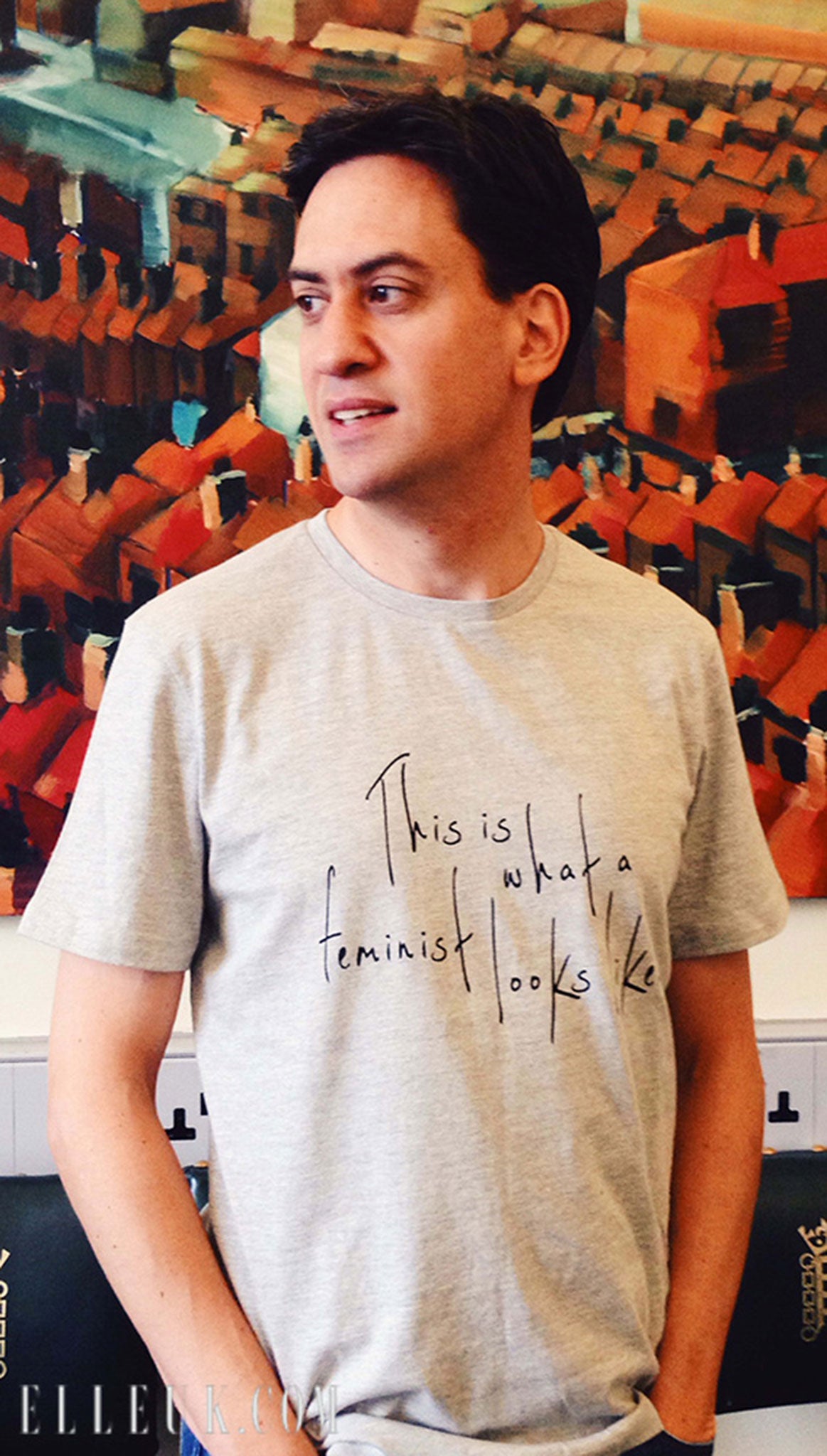David Cameron criticised for refusing to wear feminism charity T-shirt worn by Nick Clegg and Ed Miliband
The Prime Minister instead responded to Elle magazine’s request with a quote

Your support helps us to tell the story
From reproductive rights to climate change to Big Tech, The Independent is on the ground when the story is developing. Whether it's investigating the financials of Elon Musk's pro-Trump PAC or producing our latest documentary, 'The A Word', which shines a light on the American women fighting for reproductive rights, we know how important it is to parse out the facts from the messaging.
At such a critical moment in US history, we need reporters on the ground. Your donation allows us to keep sending journalists to speak to both sides of the story.
The Independent is trusted by Americans across the entire political spectrum. And unlike many other quality news outlets, we choose not to lock Americans out of our reporting and analysis with paywalls. We believe quality journalism should be available to everyone, paid for by those who can afford it.
Your support makes all the difference.Perhaps he didn’t like the colour, or maybe he objected to the simple, yet classic style, but either way David Cameron has repeatedly refused to wear a T-shirt supporting feminism.
The Prime Minister was asked five times by Elle magazine to pose in the Fawcett Society’s well-known ‘This is what a feminist looks like’ T-shirt and he declined each time. The publication had wanted to include Cameron in its feminism issue, which aims to engage men as well as women in the fight for gender equality through the UN’s #HeforShe campaign.
The initiative was launched in September by Emma Watson, who gave a powerful speech on the issue.
Ed Miliband and Nick Clegg both agreed to take part, both sharing an image of themselves wearing the T-shirt.

“This is a shame on so many levels, especially given he knew Nick Clegg and Ed Miliband had agreed without hesitation, alongside many other influential men who were more than happy to call themselves feminists,” said Elle editor-in-chief Lorraine Candy.

“It seems the Prime Minister still has an issue with the word ‘feminist’. I was personally disappointed that we couldn't feature Mr Cameron in our Feminism Issue because it is Elle’s aim to engage with men in the fight for equality: because of parliament’s current gender imbalance, it is men who have the power to make changes in every area of British women’s lives. When the man in charge doesn’t engage, it doesn't bode well.
“Given the huge international male support for UN Women’s #HeForShe campaign, it does rather make our Prime Minister look like the odd one out.”
In lieu of a picture, Cameron instead shared a quote on feminism. A spokesperson for the Prime Minister could not be reached byThe Independent.
“Whether you are a man or a woman, I passionately believe that everyone has a part to play in achieving full equality for women and girls,” said Cameron to Elle.
“As a parent I feel strongly that my daughters should have the same opportunities as my son. As a society we have come a long way in gender equality – but the journey hasn’t finished yet, which is why I am committed to doing everything I can do to remove barriers for women and achieve a fairer society.”
The Fawcett Society Head of Policy and Campaigns described Cameron’s decision as “unfortunate”.
“We are very pleased the leaders of the UK’s three main political parties have publicly pledged their support for advancing equality between women and men, and have endorsed the Elle x Whistles for Fawcett collaboration, which has relaunched Fawcett’s iconic This Is What A Feminist Looks Like T-shirt,” said Sands.
“However, we understand making a personal commitment to the cause of feminism is a matter for the individual to decide. As it stands, it would appear that David Cameron is not comfortable with identifying himself with the cause of feminism, which, given the huge contribution the feminist movement has made to advancing women’s rights, is unfortunate.”
Cameron has shied away from calling himself a feminist in the past, or at the very least seems unclear as to what the word means.
In 2013, he told Red magazine: “I don’t know what I’d call myself… it’s up to others to attach labels. But I believe men and women should be treated equally.”
He later added that if feminism “means equal rights for women, then yes. If that is what you mean by feminist, then yes, I am a feminist.”
Labour leader Miliband and Deputy Prime Minister Clegg were openly supportive of the issue in Elle.
Miliband described feminism as “striving for a world where power is something we share equally as men and women, a world where equal pay is a campaign our children learn about in history books and a woman in the top job is no longer a novelty; a world where girls are asked what they want to achieve not what they want to look like and women don’t fear violence for speaking out or wanting more”.
“Feminism means a better world for us all and a battle yet to be won,” he said.
Clegg commented that he supports both equality and choice “so yes I’m a feminist”.
“How on earth in this day and age can you not be?” he questioned, before referring to a quote of his wife international lawyer Miriam González Durántez, made earlier this year: “As a wiser person than me once said: 'Men who actually treat women as equals are the ones with more cojones.”’
Join our commenting forum
Join thought-provoking conversations, follow other Independent readers and see their replies
Comments